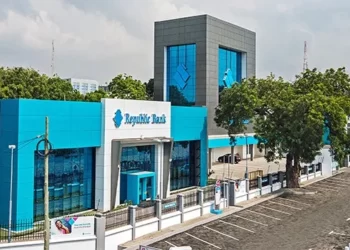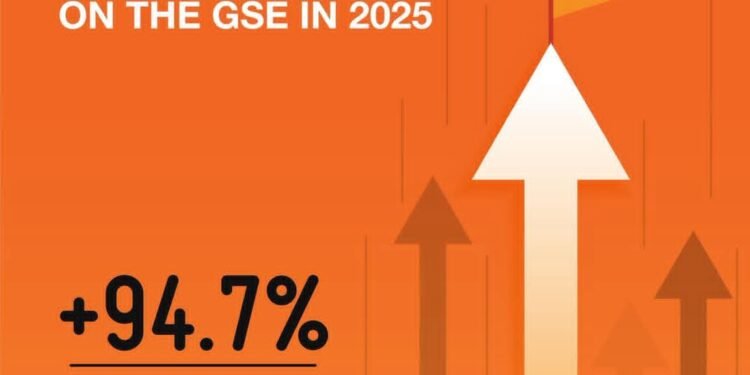The Government of Ghana’s latest treasury bills auction has seen the 91-day bill draw overwhelming demand, despite yields dropping to their lowest levels in months.
The short-term security attracted bids worth over GH¢4.8 billion, underscoring strong appetite for government debt instruments even in a declining interest rate environment.
According to the auction results released by the Bank of Ghana, the 91-day bill yield fell by 54 basis points to 10.29%. Despite this significant drop, demand was nothing short of staggering. Out of the total bids, GH¢4.320 billion was accepted by the government, representing the bulk of the GH¢5.48 billion in total securities taken up during the auction.
This is part of a broader auction in which the government recorded an impressive 75% oversubscription, receiving total bids of GH¢6.78 billion against the targeted amount.
Breakdowns of the Auction
The strong showing at the latest auction was not limited to the 91-day bills alone, although the shorter-term security clearly dominated investor interest. According to the results, the 91-day bill recorded GH¢4.8 billion in bids, of which GH¢4.320 billion was accepted by the government, making it the most subscribed instrument in the auction.
The 182-day bill also attracted significant interest, with investors tendering GH¢1.156 billion. Out of this, the government accepted GH¢823.28 million, reflecting steady demand for medium-term maturities despite the recent drop in yields. This shows that some investors are still willing to commit to slightly longer durations when the returns are perceived as relatively attractive.
On the other hand, the 364-day bill saw bids totaling GH¢774.65 million, with GH¢343 million accepted. While demand was present across all maturities, the overwhelming preference for the 91-day bill highlights a cautious investor sentiment, with many opting for short-term commitments amid evolving market conditions and expectations of further interest rate adjustments.
Interest Rates Slide Across All Maturities
The decline in yields was not limited to the 91-day bill. The 182-day bill also saw a fall, dropping from 13.22% to 12.35%. More significantly, the 364-day bill experienced a steep decline of 1006 basis points, settling at 13.24%.
Market analysts say the consistent drop in yields reflects recent macroeconomic stability trends, with inflation rates moderating and the government facing less pressure to offer high returns to attract funds.
Why Investors Still Rushed In
Despite the lower returns, the auction results indicate a sustained appetite for government debt, underscoring investor confidence in the safety and stability of Treasury securities. Analysts note that one of the key factors driving this trend is the perceived security of government instruments. In Ghana, Treasury bills are considered among the safest investment options, particularly for institutional investors seeking to preserve capital while avoiding the risks associated with private sector lending.
Another factor sustaining demand is liquidity. Short-term bills, especially the 91-day instrument, offer quick turnaround times, enabling investors to recover their funds sooner and reinvest or redirect them as needed. This flexibility is particularly attractive in a market where economic conditions are shifting, and investors want to remain agile in their decision-making.
The third driver is the scarcity of high-yield alternatives. Following the Bank of Ghana’s recent policy rate cuts and the general decline in interest rates across the financial sector, many investors view T-bills as a stable and predictable option, even at reduced yields. With fewer opportunities to earn competitive returns elsewhere, Treasury securities remain a go-to choice for both institutional and retail market players.
Implications for Government Borrowing
The oversubscription provides a strong signal for the government’s short-term borrowing strategy. The ability to attract such levels of funding at lower yields reduces the cost of borrowing, offering fiscal relief amid ongoing efforts to manage debt sustainably.
With the government accepting GH¢5.48 billion from the auction, a large portion of upcoming short-term financing needs has been addressed. Lower borrowing costs also mean potential savings for the state, which could be redirected to other economic priorities.
Looking ahead, market watchers believe that the trend of strong demand for short-term bills will likely persist in the coming weeks. However, with yields on a downward trajectory, there could be a shift in investor behavior if alternative higher-yield opportunities emerge.
The Bank of Ghana’s policy decisions, inflation trends, and fiscal developments will remain key drivers of yield movements in subsequent auctions.
For now, the latest auction results suggest a market that is confident in Ghana’s short-term debt instruments, even as the return on investment continues to decline.
READ ALSO: Gold’s Slippery Slope Could Break the Cedi’s Winning Streak – Fitch Raises Alarm























